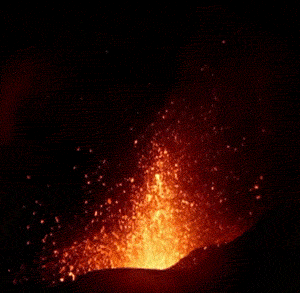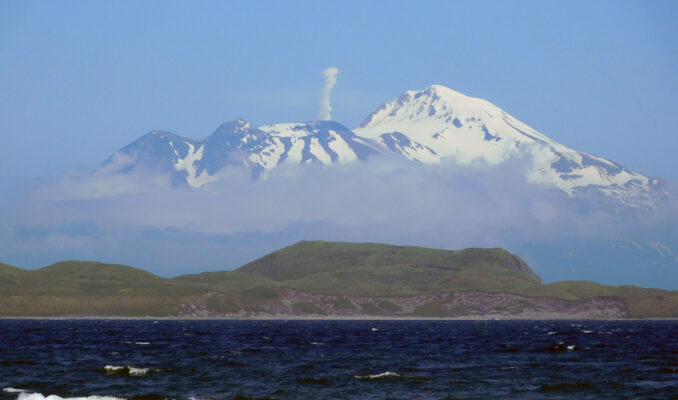
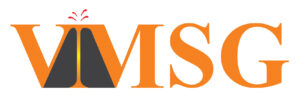
Dear volcanic and magmatic colleagues, welcome to the final VMSG newsletter of 2022. At the toe of a turbulent year, we are thankful for the enthusiasm and tenacity of our wonderful community. This issue celebrates many of our younger cohort, as we are blessed with four (!) student reports. We look forward to welcoming many more bright sparks in the near future with the publication of the VMSG PhD studentship list for projects starting in 2023. Elsewhere, we greet new members of the VMSG Committee, spread details of the imminent VMSG2023 conference, and share invites to advances in EMPA. Happy reading, and I wish you all some peaceful and restorative times with family to close the year. – Ailsa Naismith
VMSG2023 is nearly here! The conference will be on Wednesday 4th – Friday 6th January 2023, with post-conference outreach activities on Saturday 7th at the NHM. Find information on outreach, the scientific program, transport, and accommodation on the dedicated website here.
Please note: national train strikes have been announced on 3rd – 4th and 6th – 7th January 2023. These may complicate travel for many attendees. Information for use of conference attendees can be found here. – Volcanologists of London
The VMSG Committee is delighted to welcome three new members to our team. Dr. Emma Liu (UCL) is the new Awards & Bursaries Officer, and has started her role – you may have seen some of her emails already on nominations for the Zeiss postdoctoral award! Kerys Meredew (Birmingham) is the new Student Rep, supporting students in our community. Finally, Dr. Katie Preece will be joining the committee in January 2023 as a co-opted member. Katie will shadow Jazmin Scarlett for the next year and will become the Committee’s EDI officer after Jazmin’s term ends at end 2023. Katie will be supporting Jazmin with all EDI matters in the coming year and assist in writing the next edition of the VMSG EDI report.
Our huge thanks to our committee members, Dr. Nick Gardiner (Awards & Bursaries Officer) and Dr. Emma Watts (Student Rep) for their amazing hard work during their tenancy. We will formally announce our new members and give thanks to predecessors during the AGM at the VMSG2023 conference.
Initially scheduled to take place in summer 2020, Goldschmidt 2022 in Hawai’i was the first Goldschmidt held in person since the 2019 meeting in Barcelona, following two years of entirely virtual events. Hosted at the Hawai’i Convention Center in Honolulu (interestingly – for me at least – the same building used to film the scenes inside Sydney Airport in the iconic TV show Lost), the return of Goldschmidt took place over a sunny seven days in July and consisted of the usual series of short-format talks, poster sessions, and invited plenary lectures, and concluded with the choice of many optional post-conference field trips across the Hawai’ian islands. However I, like many, opted to embark on my own post-conference island-hopping adventures to make the most of this once-in-a-lifetime opportunity.
This was my first attendance of an in-person conference since January 2020 (MDSG in London) so it was a fantastic experience to finally present my research on orangeite dykes (exotic ultrapotassic magmas formed via low-degree melting at the base of cratons) in the vicinity of the Bushveld Complex, South Africa. Specifically, I presented a synthesis of multiple datasets to highlight how these rocks can record around a billion years of lithospheric mantle evolution beneath the southern African craton. Fittingly, my presentation was delivered in the Theme ‘Formation and evolution of oceanic and continental lithospheric mantle’ which took place on the final day of conference sessions.
Each day an invited researcher delivered an enthusiastic and informative plenary talk across the fields of geoscience and geochemistry. Particular highlights came from Kathryn Goodenough’s lecture, ‘Critical Raw Materials for the Energy Transition’ and Chip Fletcher’s ‘Multiple Overlapping Planetary Emergencies – A Human Inflection Point’. These powerful talks highlighted the important role we have as geoscientists in attempting to reduce the continued physical and social effects of global warming our planet is experiencing, whether that be via the extraction of green metals or simply by raising awareness and voting within our respective communities.
Goldschmidt 2022 was an unforgettable experience full of fantastic science in stunning surroundings; the bar has been set high for next year’s meeting in Lyon.
Hello VMSG community! Earlier this year I was awarded a student bursary which has contributed to carrying out essential fieldwork in the Torfajökull volcanic area. These field-based studies are an integral part of the cross-disciplinary approach of my PhD project, allowing us to characterise volcanic deposits and infer mush mobilisation and lava emplacement mechanisms.
Anyone traveling abroad this year might be experiencing some anxiety with the high number of delays and last-minute flight cancellations that people have been reporting, and my team was not the exception to these travel issues. We arrived to Keflavík Airport to find out that my supervisor’s bag had been lost and no immediate retrieval date was given to us. Since access to the research area is only possible during the summer months, there was no other option but to improvise and adapt to the dreaded and unfortunate situation we were presented with.
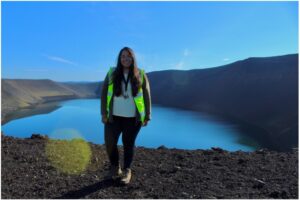
We spent the next following days investigating and collecting samples from three separate lava flows: Laugrahraun, Námshraun, and Dómadalshraun. These are some of the most visited lava fields within the Torfajökull volcanic area, and their popularity is mainly due to their proximity to Landmannalaugar, a stopping point for thousands of tourists who visit the Icelandic Highlands during summer. The felsic samples with mafic inclusions that we collected are evidence of mingling between mafic magma, which has been injected by propagating dykes coming from Bárðarbunga volcano, and the resident felsic mush. We interpret this mechanism as the likely trigger of major felsic eruption cycles and hence as the key to assessing hazards in this system.
I am very appreciative of the contribution that VMSG put towards the success of my project. Expanding our geological studies and collecting samples of these volcanic deposits will allow us to perform geochemical and textural analyses within a greater sampling area. The geochemical and petrological data that is collected in the next few months will be used to constrain custom-built three-phase reaction-transport models that will in turn inform the hazard assessment and early warning scenarios of the Torfajökull volcanic area.
In July 2022, I was able to attend the long-delayed and highly anticipated Cities on Volcanoes 11 in Heraklion, Greece thanks to the support of the VMSG student travel bursary – awarded way back in the heady days of winter 2019. As I was coming to the end of my PhD (or so I thought…) it felt important to share my work with the diverse community that attends CoV as well as take advantage of the opportunity to hear from experts across all aspects of the volcanic hazards community worldwide. With COVID-19 delaying the conference until I was outside my PhD funding period, without the support of the VMSG travel bursary I would likely have struggled to attend.
As I (like many) hadn’t left the country since the start of lockdowns in 2020, the sense of excitement and anticipation as I travelled to CoV was extreme. On arrival, it felt incredible to be surrounded by a community of like-minded researchers who were all there to share their knowledge and experiences (and hummus!). To be surrounded by the spectacular historic town of Heraklion and the volcanic landscape of Crete was the icing on the cake (or feta). The hybrid approach to the conference made it all the richer, aided by the fantastic tech support at the venue and an engaged audience on both sides of the screen.
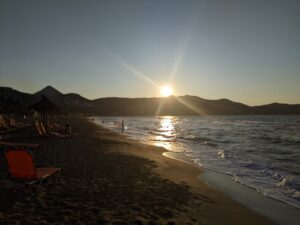
I presented work undertaken as part of my PhD and part-funded by the Zeiss-GSL microscopy scholarship I was awarded in 2019. I was able to showcase our use of a correlative microscopy workflow that preserved and extracted as much information on vesicle and crystal textures as possible via 2D and 3D imaging of basalt-rhyolite mingled clasts from Ascension Island, South Atlantic. The other talks in my session provided invaluable insights into the techniques and practices being employed by researchers in my field, helping to place my own research into context of the global volcanological community.
I was particularly moved by the research and experiences shared surrounding the 2019 eruption of Whakaari / White Island and the long-term responses of scientists and communities in the aftermath of the eruption of Nevado del Ruiz. Over the week I was able to immerse myself in both the physical and social aspects of volcanology thanks to the diverse and dynamic nature of the conference. A personal highlight was attending the outreach exchange and the announcement that UWISRC had won the IAVCEI 2022 Volcanic Surveillance and Crisis Management award for their incredible response to the 2020-21 eruption of La Soufrière St Vincent – there was not a dry eye on my row! My experiences at CoV in Crete provided the much-needed energy and inspiration to push my thesis across the finish line. I could not have done it without the support of the VMSG student travel bursary.
Alkaline layered igneous intrusions, like Ilímaussaq, host Rare Earth Element (REE) deposits critical to the energy transition and the green economy. However, the genesis and layering mechanisms of alkaline intrusions responsible for the concentration of critical metals are hotly debated. Our research aims to resolve how alkaline intrusions form and evolve, improving the efficiency of REE exploration and extraction, allowing us to secure the critical metal supply chain to meet the ever-growing global demand for a greener future.
We completed a 6-week expedition to Ilímaussaq, including a short trip to the island of Tuttutooq where we studied more layered intrusions. The fieldwork comprised geological mapping and window mapping in areas of interest, with particular focus on mapping structural and textural features within the rocks. Informed by the mapping, localities with clear examples of layering were chosen for detailed stratigraphic logging and sampling. Interesting observations from the field include crosscutting relationships and variations in euhedral and stretched minerals within the lujavrites (an area with hypothesized faults and/or feeder zones within the literature), fabrics within the layered kakortokites oblique to the layering, and mineral textures within the kakortokites such as variations in poikioblastic textures. The maps, logs and samples are being used as the foundation for a combined field and rock magnetic study in order to assess the preserved rock fabric record and test its compatibility with previously proposed layering models, which to date have mostly been interrogated by geochemical and mineralogical data.
Our expedition team wild camped in a remote area for the full duration of the trip, allowing all team members to strengthen their outdoor skills and enjoy the peacefulness that comes with being detached from the outside world. Having now completed fieldwork in the Gardar Province, with incredible geology, landscapes and wildlife, it is easy to see why Henry Emeleus was so drawn to the region. It was a pleasure and honour to follow in his footsteps, and I look forward to contributing to our knowledge on this beautiful part of the world.
I would like to thank the VMSG for their support of this expedition, along with the Gino Watkins Memorial Fund, the Arctic Club, The Geological Society of London, the Society of Economic Geologists, CASP, the Hazel Prichard Student Bursary, and the Edinburgh Geological Society. Without this support the expedition would not have been possible. I will be presenting preliminary results from the study at VMSG 2023, so please come and chat!
Do you enjoy discussing anything volcanic, whether magma generation in the deep Earth, sulfate aerosol coagulation in the stratosphere, volcanic risk communication and management, and volcanoes in far far away galaxies? Do you want to broaden your horizons in volcanology and network with an international community of fellow ECRs? Do you want to discuss your favorite topic in a pressure-free and friendly environment? We’ve got you covered with the ECR Volcanology Reading-Rendezvous: a journal discussion group created by, and run for, Early Career Researchers in Volcanology.
We aim to provide an accessible and inclusive platform for ECRs to come discuss new ideas, develop reviewing skills, and learn about new topics. We organize and run once-monthly discussions which focus on exploration of a new and/or keynote paper in any subject related to volcanology, with the discipline(s) involved changing every month. Meetings are usually held on the second Thursday of the month on Zoom, and last for 60 min. Two meetings are run: one adhering to Europe/Americas/Africa time zones, and one adhering to NZ/Australia/Asia timezones. Future meetings will also include practice sessions for mainstream conferences and career-development discussions.
To receive meeting details as they are released, you can sign up to our mailing list: https://docs.google.com/forms/d/e/1FAIpQLSfJnO0mb2QhUXttzCWGa5dpqasluoOgF8YTLWLtVWs0XdyWfw/viewform. In our next meeting, we’ll give the opportunity to anyone interested to practice conference talks (AGU and VMSG season!) and get feedbacks from the audience including the organizing committee. You can also read more about how our meetings work on our website (https://sites.google.com/view/ecrvolcan-rr/home) or on Twitter (@ECRVolcan_RR). Please feel free to distribute this email to those who may be interested. Also, if you have any questions, don’t hesitate to contact us either via Twitter, or by email (volcano.ecr@gmail.com). – The ECR Volcanology Reading-Rendezvous organizing committee
We are pleased to announce the 4th “Virtual Workshop on EPMA Developments and Applications”. Please do not hesitate to visit our new website (https://sites.google.com/view/epmaathens2023).
The upcoming virtual workshop (27-30 March 2023) offers even more opportunities than previous ones. Based on feedback provided by participants of last year’s workshop, NEW topics and speakers have been added. We will cover topics ranging from conventional major element quantitative analysis to new developments in X-ray mapping, k-ratios, trace element analysis, measuring oxidation state and water content of hydrous glasses, tracing mantle processes, halogen measurements, magmatic sulfide implications, and characterizing meteorites. Additionally, we will present WDS analysis using SEM instruments. Furthermore, two live demonstrations using JEOL and CAMECA instruments of how someone is measuring for EPMA will be given during the virtual workshop.
Here is a list of PhD studentships for the academic year 2022-23. The list includes funding source, host institution, and deadline for application. This list represents a lot of work and was kindly compiled by our Student Rep, Eilish Brennan. If you have a PhD that you would like to advertise that is not on this list, please email Eilish at eeebr@leeds.ac.uk.
The BGS are seeking a minerals commodity analyst based at the BGS headquarters in Keyworth, Nottingham. The role will involve working with a small team of experts on data compilation, intelligence gathering and analysis on global and UK minerals markets. The position is an exciting opportunity to take a key role in the new UK Critical Minerals Intelligence Centre (UK CMIC), which will support the UK in securing the supply of the minerals and metals it requires to ensure the success of the net zero transition, mitigate risks to national security, deliver economic prosperity and create opportunities for UK businesses in critical mineral supply chains domestically and internationally.
Full details of the job can be found here. The closing date for applications is Sunday 11th December.
Forest Research are seeking to appoint a Climate Impacts Modeller to undertake and support their Climate Change Research Group’s (CCRG) research on the resilience of commercial and native forestry species to future climate change. There will be a focus on applied research and modelling with an expectation to lead on modelling forest response to predicted climate change (UKCP18) scenarios. Evidence of experience in climate risk prediction demonstrable capability in mentoring junior staff and contribution to external research bids and collaboration. Data analysis skills should include data visualisation, and the applicant should have a track record of scientific publications, report writing, and peer-review are essential.
Full details of the job can be found here. The closing date for applications is Sunday 4th December.
The Department of Earth Sciences, UCL, are seeking a Lecturer (Teaching) to assist with delivery of their taught programmes, particularly in areas of environmental geoscience (including environmental geochemistry, applied environmental monitoring and mapping). Important components of the role would include designing and leading an environmental mapping module and fieldwork, and undertaking a strategic overview of environmental geosciences teaching in the department.
Full details of the position are available here. The closing date for applications is Sunday 1st January 2023.
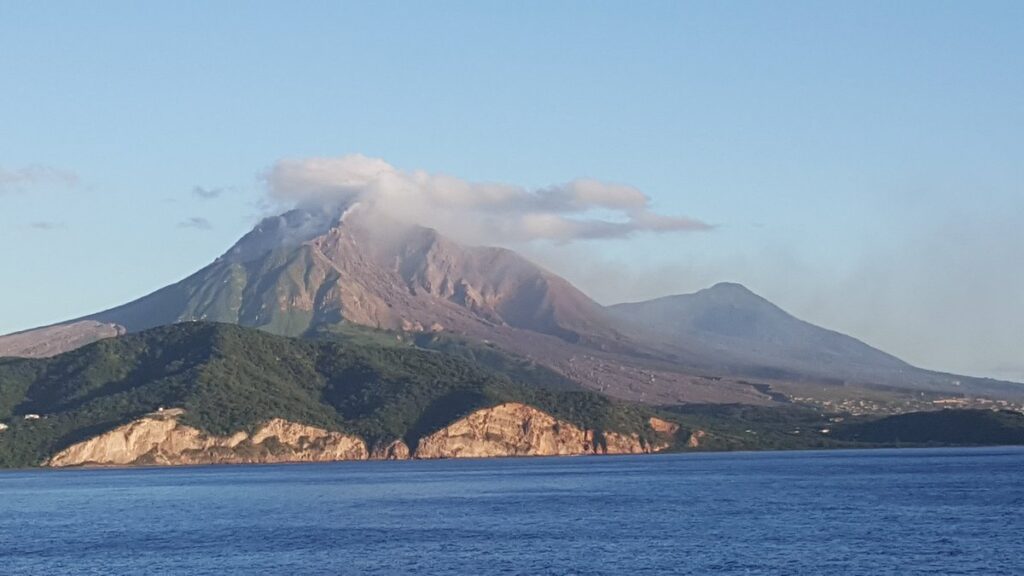
We promoted this event in our previous newsletter, with its original date of Monday, 7th Nov 2022. Due to train strikes, the event has been rescheduled to Monday, 20th February 2023. Professor Jenni Barclay will give a public lecture at the Geological Society on, “The stories we tell about volcanoes, and why it matters when they erupt”. Her talk promises to “explore the role that narratives – or the stories that we tell of the causes and consequences of volcanic disasters– play in how scientists, decision-makers and communities make sense of these uncertain situations, and even how they influence actions”. Click here for the link to tickets via Eventbrite.
Don’t forget to keep in touch with us and other volcanologists around the world. There are several ways you can do this: through the VMSG PhD and ECR directory (here), the Arizona State University mailing list (here), and the VMSG mailing list (here).
